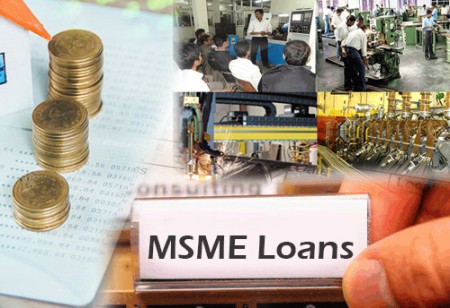
5 Financial Assistance Schemes for Startups


In forms of fiscal incentives and reimbursements of capital cost, the government is acclimatizing India for the next startup surge
India’s successful late-stage-ventures are witnessing big heights today. With pioneers like One97 Communications, Ola Cabs, Byju’s, OYO Rooms and 17 other unicorns, India is positioned third in the global unicorn list after the US and China. Yet, these multimillion-dollar startups are still paying the price of ‘overcapitalization’ and most of these businesses are losing money by paying capital interest and dividends. In the long run, long-term sustainability is at stake.
In this scenario, capital/financial assistance will be a boon to the Indian startups. This will not only encourage more startups to commercialize business ideas but will help them to leverage a stable financial ecosystem without risking their assets. With the zeal to alter the fate of the startup-ecosystem of India, the government has come up with an array of start-up schemes to financially back the projects having potential market value. Amongst many promotional platforms to guide the growth drivers of India, we have enlisted five such financial schemes which will rear a sustainable startup-up ecosystem in making India the next hotspot of innovation.
[$$$]
Credit Linked Capital Subsidy for Technology

India is a proud nation, which bears the age-long glory of rural entrepreneurship in the traditional industries such as coir, khadi, and others. The capital crisis among the rural artisans being a grave issue that stalled rural industrialization for years, Ministry of Micro, Small and Medium Enterprises (MSME) has extended its arm to support them with adequate funding. On the flipside, to increase the global competitiveness of these rural ventures, the government has approved a special financial subsidy aiming the registered Small Scale Industry (SSI) to upgrade their manufacturing units into a state-of-the-art facility. Credit Linked Capital Subsidy for Technology (CLCST) scheme by GTAB/TSC will grant capital support of 15 percent (institutional finance of up to Rs.1 crore) for upgrades in 51 sub-sectors to deliver technology-intensive products.
The ceiling loan limit is admissible after calculation of the reference to purchase price of plant and machinery after online submission of the application by Primary Lending Institutions (PLIs). The application is approved by the internal finance wing and then funds are released by nodal agencies to PLIs to implement the upgrades by MSEs. In a country where 70 percent of the population calls rural-India, it's home, India is preparing to decentralize its industrial reforms to transfer responsibilities to the rural entrepreneurs to leverage the country’s economic health. Nirmala Sitharaman, Finance Minister, India, in budget presentation 2019, stated, “A hundred new clusters for traditional industries by 2019-20 with 50,000 artisans to join the economic value chain”.
[$$$]
SIDBI Make in India Soft Loan Fund for Micro Small and Medium Enterprises

India has slipped 10 positions in the global competitive index this year due to the accelerated economic growth of the other nations. The economic dip is a momentary regression, as India’s steadfast efforts in the pathway of innovation are exemplary. The primary goal of ‘Make in India’ mission is to transform India into a global manufacturing hub and has involved Small Industries Development Bank of India (SIDBI) to extend financial support to the country’s indigenous manufactures. Any new enterprises, seeking funds to set up their own manufacturing unit can avail SIDBI Make in India Soft Loan Fund for Micro Small and Medium Enterprises (Smile). The scheme is valid for those industries that are identified as 25 sectors under the ‘Make in India’ program.
Smile aims to provide a soft loan that bears both the features of quasi-equity state and term loan which will help the new startup enterprises in meeting the debt-equity ratio for the MSME establishments or perusing organizational growth. For enterprises promoted by general caste, SIBI will bear 10 percent of the project cost (Rs. 20 lakh maximum). The MSMEs if endorsed by a person belonging from by SC/ST/Persons with disability/Women category (controlling stake of at least 51 percent), then the 15 percent of the project cost (Rs.30 lakh maximum) will be offered as a soft loan. The scheme was launched back in 2015 by late Arun Jaitley (former Finance Minister) is revolutionizing the startup ecosystem to benefit around 13,000 enterprises and employ almost two lakh persons down in the next fiscal years.
[$$$]
TIFAC – SIDBI, Technology Innovation Fund (SRIJAN Scheme)

Most startup-founders today are falling short on the risk-fund investment. Startup ecosystem being largely played by ‘high-risk high reward’ game, Indian startups are losing the market vigor as they fail to create new opportunities in emerging fields. Viewing the need to develop national capabilities in the market, SIDBI in collaboration with TIFAC is providing TIFAC – SIDBI, Technology Innovation Fund (SRIJAN Scheme) to boost innovation and support MSMEs for better business opportunities. The financial support is offered as a developmental loan to cover 80 percent of the project cost (Rs.100 lakh maximum) having flexible terms & interest rate which is less than or equal to five percent per annum.
The scheme was started in 2010 with an initiative to assist MSMEs in up-scaling, demonstrating and commercialization of high-risk technologies in the market. Hence, every recommended proposal is scrutinized by a Project Approval Committee (PAC) which constitutes both members of SIDBI and TIFAC. To check the technological to the financial viability of the project, TIFAC officials measure the innovative potency of the proposed project while SIDBI releases the claims in appraising the enterprises. The scheme covers a huge portion of early-stage funding for the startups which will help to maintain quality and cost-effective innovative products. India ranks third after US and China in tech innovation; with SRIJAN scheme, India will become the powerhouse for disruptive technologies and will soon occupy the highest rank in the coming years.
[$$$]
BPCL Start-Up Scheme
.jpg)
A startup-ecosystem is not a unidirectional operating system, as the seed ideas need regulatory assistance, investors, institutional support, mentors and even a workspace to shape them into real-time products. In India, where startup foundations are spurring across the country at a fabulous speed, yet it fails to successfully flourish in the market either due to lack of fund-flow or mentorship. This is becoming a grave factor that India’s startups fall short of a supportive ecosystem. With a motive to close the growing lacunae, BPCL has stepped up and has started a startup scheme under ‘Project Ankur’, aiming to develop a startup ecosystem. The scheme comes with a promise to turn every entrepreneur’s dream into reality by supporting re-engineering ideas to the stage of validated Proof of Concept (PoC) with post-PoC assistance by providing adequate funds.
The project was launched by BPCL in 2016, with an objective to surge positive innovations at Indian ground. Hence, the scheme is an open call for ideas addressing Indian citizens to NRIs who wish to promote their technologies/solutions and work in India. The applications require proper schematics of ideation, business plans and details of the follow-through process. Upon selection of the proposal, the respective projects will be eligible to receive funding for over a period of 36 months as installments against the agreed/accepted milestone. Furthermore, no royalty will be charged on the funds which will be sanctioned under this scheme. Efforts are gradually reflecting, as in 13th February 2020, it has been reported that BCPL has incubated 25 startups in making of the successful venture with adept support under ‘Project Ankur’.
[$$$]
The Venture Capital Assistance Scheme

India is long been recognized as the agricultural powerhouse of the world. With the enhancement of Agri-Exim reforms, it has envisaged expanding its global trade-wing in the coming fiscal years. Conclusively, the agriculture service and machinery which attracted about $466.31 million and $2.02 billion equity flow of Foreign Direct Investment (FDI) from 2000-2017, is sure to contribute for more. Being a promising sector, which reaps greater exports than an automobile or a garment industry, the government has agreed to suffice every agripreneur’s capital funding needs in increasing the flow of agri-based products in the market. Through the Venture Capital Assistance Scheme (VCAS) of Ministry of Agriculture and Farmers Welfare (MAFW), SFAC is providing interest-free loan-plan for the qualifying projects in implanting the ides.
The quantum of the loan will be decided upon evaluation of the credit of the projects, which are exclusive to the agricultural sector or others associated with agriculture practices. When sanctioned, the loan amount will be 26 percent–40 percent (for the northeastern region, hilly states or backward regions) of the promoter’s equity and can reach up to Rs.50 lakh. For high venture capital, MAFW has authorized SFAC to sanction a capital of a maximum of Rs.3 crore where the net worth of the project should not exceed Rs.10 crore. In a SFAC seminar held in 2018, West Bengal, attended by 145 farmer producer organization representatives, 140 industry and 15 bankers, Sumanta Chaudhuri (MD, SFAC) asked for urgent reforms to link market needs and farmers produce. Viewing the growth in farmer’s income by 3.2 times in West Bengal, after the launch of the scheme in 2012, Sumanta mentions, upon full utilization, VCAS will fuel more agri-business entrepreneurs in the state.
Today, 62.5 percent of the India’s population ranges from the age group 15-59 years, which will be reaching its peak by 2036. Addressing this demographic dividend we need to collate more support to assist the generation to welcome startups in the coming years. Anas Junaid, Chief Researcher, Hurun Global Rich List, foresees a silver lining that India will soon catch-up with ‘Big 2’ if the regulatory and business environment prepares to capture the demographic dividend.